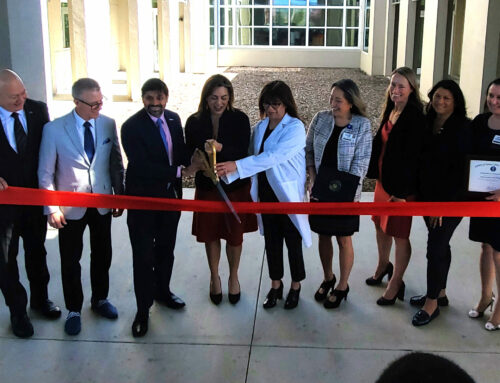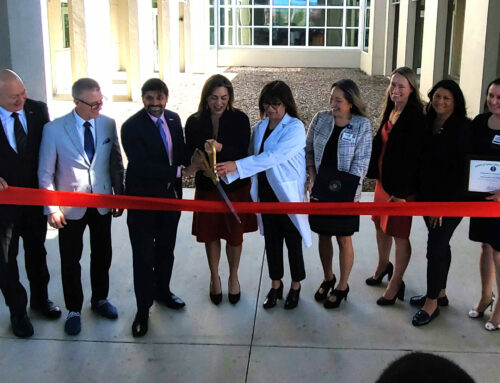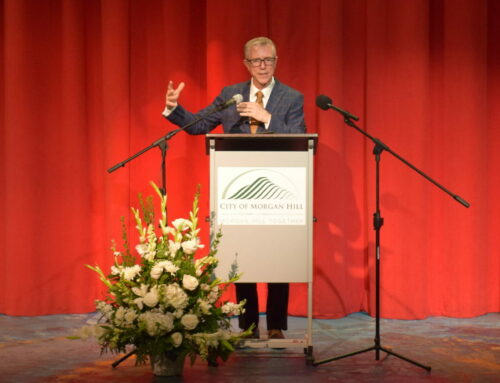Tenzin Chogkyi studied under Tibetan Buddhist masters and has practiced throughout the world
Published in the February 15 – 28, 2017 issue of Morgan Hill Life
By Staff Report

Tenzin Chogkyi
Tenzin Chogkyi discovered meditation after reading the best-sellers “Be Here Now” and “Autobiography of a Yogi” in the early 1970s. For 20 years, her spiritual path was meandering and haphazard and included several dead ends until she decided to meet the Dalai Lama when she bought a one-way ticket to India in 1991.
She spent a year studying at the Tushita Meditation Centre in Dharamsala and the Kopan Monastery in Kathmandu. She now serves as the resident teacher at Vajrapani Institute, a Tibetan Buddhist retreat center near Boulder Creek. She is also an activist concerned with prison reform, equal rights for all and ending human trafficking.
As a guest of the Friends of the Morgan Hill Library and the Morgan Hill branch of the American Association of University Women, Chogkyi will share her story at the Morgan Hill Library 7 p.m. Tuesday, Feb. 28. Morgan Hill Life asked her about meditation and how it can increase the quality of life of people who practice it.
How did you become interested in spiritual meditation and where did you study this practice?
I first started meditating in the early ‘70s as a hippie teenager. In those days, Transcendental Meditation was all the rage, popularized by the Beatles and other celebrities. Many years later, I traveled to India and became a student of Tibetan Buddhist masters, and have been practicing in this tradition for the last 25 years, spending time in India and Nepal, and at Buddhist meditation centers in the US, Australia, New Zealand and Canada.
Describe your spiritual journey and what you learned from it that you might want to share in your upcoming talk in Morgan Hill.
My decision to do several long silent meditation retreats, totally over six years, and my life as a Buddhist nun living outside of Asia are quite unusual. They often arouse curiosity and questions when I am in public. The lifestyle of voluntary simplicity of a Buddhist monastic is something that I think can provide a thought-provoking example in our era of secularism, materialism, and hyper-consumerism.
At the AAUW talk, I will be sharing a bit about my personal journey and providing plenty of time for the participants to ask questions about this somewhat unique lifestyle.
Why might you encourage people to try meditation — especially here in the Silicon Valley where many people live a fast-paced life?
It seems that we often live life very reactively, and not very pro-actively. With our fast-paced life, and the increasing amount of sensory input that we are constantly receiving from our relentless exposure to media and our digital devices, we are expected to respond immediately to stimulus, with no time for reflection whatsoever. When we are constantly in this kind of reactive mode, our decision-making suffers, as we often respond emotionally (our emotions often being the most readily accessible information when we are in such a pressured mode) without a chance for deeper reflection and insight.
The growing “need” for digital devices is creating a world of increasing distraction. Why might you encourage people to let go of their high-tech gadgets on occasion and get into the moment of meditation?
Buddhist meditation emphasizes motivation and intention, and getting insights into the nature of reality. With these insights, it is possible to be much more clear in our choices and decisions, and live in attunement with our deeper goals and aspirations. With a regular meditation practice, it is possible to emerge from that reflection with a renewed aspiration, and to be able to act from that place of clarity and insight, even when getting caught up in the demands of our daily life.
What practical benefits might come to the life and mind of a person if he or she starts developing the habit of meditating on a regular basis?
The latest positive psychology research has shown that our lives are happiest when they are lived in a way that is meaningful. The short-term happiness gained from sensory stimulation is not conducive to long-lasting happiness and a deeper sense of satisfaction. Without the time for reflection, getting in touch with what is meaningful for us and our deeper levels of aspiration and intention, it is impossible to live our lives in alignment with that deep sense of meaning. So regular meditation practice can, in a very practical way, enable us to live our lives more meaningfully, which will give us a deep sense of well-being and satisfaction.






